
News




Margaret Chan, director-general of the World Health Organization (WHO) has issued the following statement regarding a report, "Ten Years in Public Health 2007-2017," that chronicles the evolution of global public health over the decade that she has served in WHO leadership.
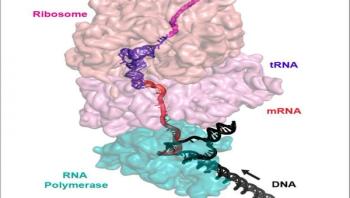
There are many processes that take place in cells that are essential for life. Two of these, transcription and translation, allow the genetic information stored in DNA to be deciphered into the proteins that form all living things, from bacteria to humans to plants. Scientists have known for half a century that these two processes are coupled in bacteria, but only now have they finally had a look at the structure that makes this possible. In a paper published in Science on April 13, 2017, biochemists from the University of Wisconsin-Madison and the Max Planck Institute (MPI) for Biophysical Chemistry in Germany have revealed the defined architecture of what is called the "expressome."


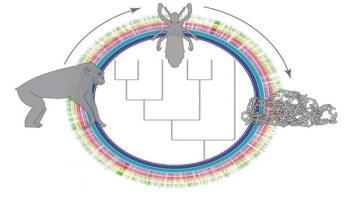
Head lice have been stigmatized, quickly conjuring images of infested school children and parents combing through their hair. This social stigma reaches many of the estimated 14 million people who are annually infested in the U.S. alone. However, these blood sucking lice have had a long and complex evolutionary history tied to humans and other mammals. In total, there are 532 species of blood sucking lice and each species parasitizes one or just a few mammal species. In the past, scientists have taken advantage of the close associations of lice to their hosts to approach questions of human evolution. Research is now moving to the bacteria associated with these lice.


Countries are not increasing spending fast enough to meet the water and sanitation targets under the Sustainable Development Goals (SDGs), says a new report published by the World Health Organization (WHO) on behalf of UN-Water – the United Nations inter-agency coordination mechanism for all freshwater-related issues, including sanitation.

A study of almost 5,000 Latin American-born residents of Los Angeles County found that 1.24 percent tested positive for Chagas disease, a parasitic infection that can cause life-threatening heart damage if not treated early. Chagas disease is one of the leading causes of heart failure in Latin America.
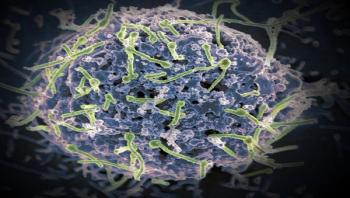
Analysis of daily gene activation in a patient with severe Ebola virus disease cared for at the National Institutes of Health (NIH) in 2015 found changes in antiviral and immune response genes that pinpointed key transition points in the response to infection. The changes included a marked decline in antiviral responses that correlated with clearance of virus from white blood cells. The analysis also showed that the preponderance of host responses shifted rapidly from activation of genes involved in cell damage and inflammation toward those linked to promotion of cellular and organ repair. This pivot came before the first signs of clinical improvement in the patient, who was admitted to the NIH Clinical Center on day 7 of illness and remained for 26 days. Researchers from the NIH's National Institute of Allergy and Infectious Diseases (NIAID) led the study.


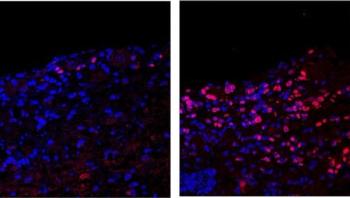
Herpes simplex virus (HSV) infections last a lifetime. Once a person has been infected, the virus can remain dormant (latent) for years before periodically reactivating to cause recurrent disease. This poorly understood cycle has frustrated scientists for years. Now, National Institutes of Health (NIH) scientists have identified a set of protein complexes that are recruited to viral genes and stimulate both initial infection and reactivation from latency. Environmental stresses known to regulate these proteins also induce reactivation.


Bacteria are everywhere. And despite widespread belief, not all bacteria are "bad." However, to combat those that can cause health issues for humans, there has been an over-reliance on the use of antibiotics -- so much so, that many of them are now proving ineffective due to bacteria developing increased resistance to them.



Dr. Robert Davey, a scientist at Texas Biomedical Research Institute, is part of a team of researchers working to find new drugs that will stop Ebola virus from growing inside infected cells. Dr. Christopher Basler, a professor in the Institute for Biomedical Sciences at Georgia State University, has received a five-year, $4.1 million federal grant for this project. Davey and his team will work closely with Basler to validate all new drugs identified in the effort. The work will involve seeing if the drugs block infection of cells by live Ebola virus and will be done in the biosafety level 4 laboratory at TxBiomed.



Scientists at the Scripps Research Institute (TSRI) have found a way to tether HIV-fighting antibodies to immune cells, creating a cell population resistant to the virus. Their experiments under lab conditions show that these resistant cells can quickly replace diseased cells, potentially curing the disease in a person with HIV.
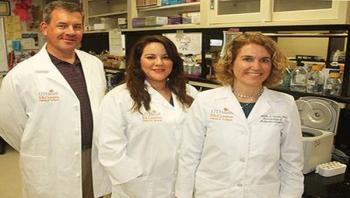
An antimicrobial protein caused a dramatic reduction in the creamy white lesions associated with oral thrush in a preclinical study, report microbiologists with McGovern Medical School at the University of Texas Health Science Center at Houston (UTHealth). Findings appeared in the Proceedings of the National Academy of Sciences.

Researchers from Harvard Medical School have discovered that the body’s immune system initially detects the presence of anthrax spores by recognizing RNA molecules that coat the spores’ surface. But this prompts an unfavorable immune response that hinders the body’s fight against anthrax once the spores have germinated into live bacteria, according to the study “TLR sensing of bacterial spore-associated RNA triggers host immune responses with detrimental effects,” which will be published April 11 in the Journal of Experimental Medicine




